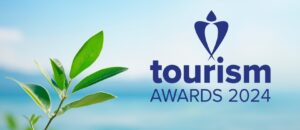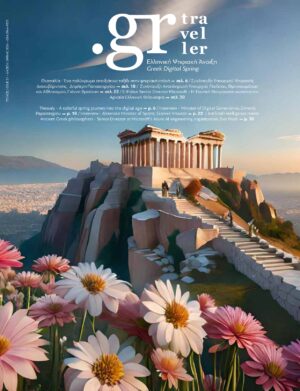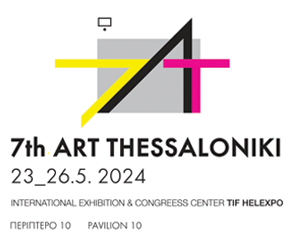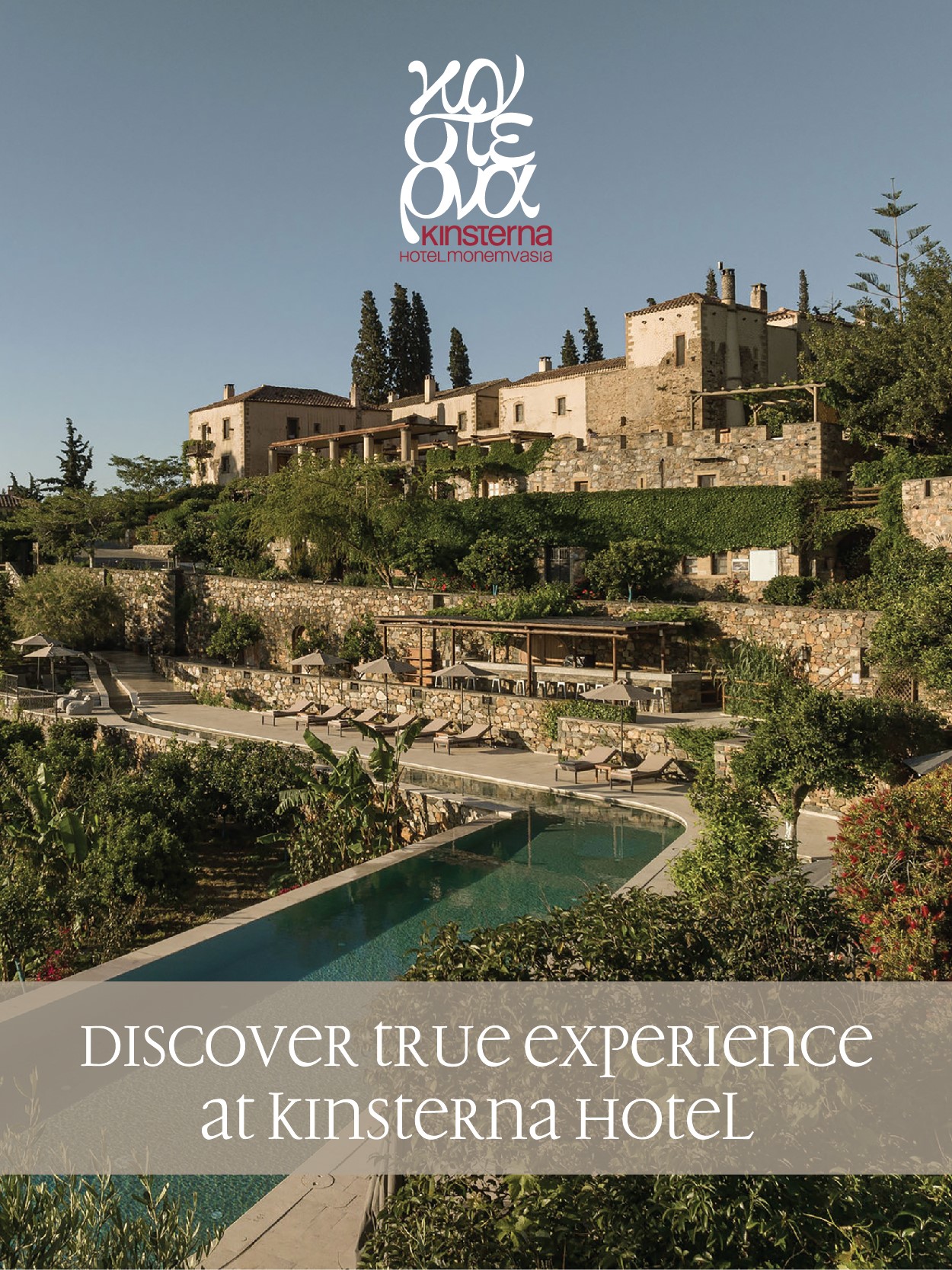ARTICLE BY MICHALIS MARCOS, MBA*
MANAGER – BUSINESS CONSULTANT & BUSINESS ADVISER PROFESSOR OF BUSINESS ADMINISTRATION/MARKETING

Tourism in Greece has been one of the main pillars of growth of the Greek economy, with a significant contribution to the labour market, showing a continuous increase in revenues and visitor arrivals in recent years. This sector has contributed to the creation of thousands of new jobs during the crisis, making a significant contribution to GDP and to the professional rehabilitation of thousands of young people. But what are the soft skills that a young person should have and that employers in the tourism sector are looking for?
What are Soft Skills
In the labour market we often refer to the skills/skills that a worker should have in order to be considered suitable for a recruitment, promotion, internal movement, transfer, etc. These skills are divided into formal qualifications acquired through education (degrees, diplomas, certificates of computer knowledge and use, language skills, etc.), called “hard skills”, and personality traits or behaviours, called “soft skills”. Developing and cultivating soft skills requires determination, perseverance and will. Based on research, 80% of an executive’s career achievements are due to their soft skills, while only 20% are determined by their hard skills.
Nowadays it is of paramount importance to possess these skills, which can make you stand out from a crowd of well-trained professionals and can therefore be a decisive factor in finding or not finding a job in the tourism sector. In particular, “soft skills” have to do with skills and behaviours related to the way we interact with our colleagues, with our supervisors, with our partners on issues such as communication, flexibility, innovation, leadership, passion, persuasiveness, persuasiveness, extroversion, problem-solving, team spirit, entrepreneurship, time management, bottom-line orientation, change management, risk-taking, etc. The following skills are considered to be the most in-demand skills sought by employers in the tourism industry.
Communication skills
Interpersonal and communication skills include the ability to listen and observe in order to really understand, to discuss, to communicate effectively, to convey thoughts and ideas orally or in writing, to relate and express ideas in a clear and effective way, to use strategies and skills to work with others, to persuade or influence, to encourage participation, to negotiate, to give and receive.
Communication and good interpersonal relations are vital in the tourism industry, not only for motivating staff, but also to achieve an organisation’s business objectives. In order for staff to do their job properly and accurately, they need to have a good understanding of their own role and that of others, as well as being able to work effectively and function as part of a team. This can only be achieved through good communication and interpersonal relations. It is necessary that verbal and visual communication is at a level that not only helps to convey messages and communication, but also to improve understanding, cooperation and therefore service.
Emotional Intelligence (EQ)
Our emotional intelligence determines how easily we can form relationships with other people,
to put ourselves in their shoes and try to understand how they feel and ultimately determines how easily we gain the sympathy of others. Emotional intelligence is very important when working in teams or being in charge of a team and its development is invaluable for our daily life and development in the tourism industry. A simple way to develop it is to consciously try to “put yourself in the other person’s shoes”, to feel their needs and concerns and to be understanding.
Working in a team
Teamwork skills mean being able to work smoothly and effectively in cooperation with colleagues. This requires a range of other skills, such as being able to encourage and inspire other team members, to synthesise, compromise and sometimes put aside one’s own ego, to have communication and other interpersonal skills such as negotiation, influence and understanding.
Teamwork is a priority for most employers. People who can empower the team, contribute new ideas, have leadership and decision-making skills on the one hand, and the ability to follow instructions and play their role in a team on the other, are highly valued. Teamwork and the ability to work in a team environment is an important factor in achieving goals and results for all organisations operating in tourism.
Flexibility/adaptability
It is the ability to adapt to changes and new circumstances, to adjust your plans and, if necessary, your goals, and to use new information and situations in a creative way.
During your working life you will need to change jobs and employers, but you will also have to deal with changes in the context of your work. The ability to adapt easily and quickly is a competitive advantage for you, as people who can adapt quickly to change and multi-task in different environments are highly valued in the job market in this industry.
Problem solving
Problem-solving skills involve the ability to assess situations, identify problems, consider ways of solving them and
choose the most suitable one. This process includes the re-
knowledge of long-term consequences, as well as the
conception, implementation and a-
formulating an action plan to solve the problem. Therefore, when faced with a problem, try to find the solution and possible alternatives. In the tourism industry, people who take personal responsibility to ensure the achievement of objectives are highly valued. People who can see that there may be a better way of doing something and are ready to explore and implement change. They also don’t panic and don’t give up when something goes wrong, but try to find a solution.
Creativity
Creativity is being able to think outside the box. To be creative, one must be able to discover new and innovative ways of thinking and ways of doing things. Employers want people with fresh ideas to help them design new products and services, meet challenges and competition and expand their businesses.
Initiative and entrepreneurship
Sense of initiative and entrepreneurship refer to the ability of an individual to turn ideas into action. It includes creativity, ingenuity, innovation and risk-taking, as well as the ability to plan and manage projects in order to achieve specific objectives.
In the tourism sector, this skill is particularly important as it is linked to understanding the context of work, assessing opportunities and risks, exploring alternatives, taking up challenges and innovation. This particular skill should mainly characterise those who choose to start their own business. However, in today’s labour market it is important to have an entrepreneurial spirit, whether you want to start your own business or not, as entrepreneurship helps people to expand their career and personal development opportunities and to face challenges and uncertainty in the workplace with resourcefulness, flexibility and efficiency.

Other skills
At the same time, equally important soft skills are other personality traits such as kindness, integrity, optimism, self-confidence, responsibility, strong work ethic, as well as other personal traits such as numeracy & digital competence, creativity, logical and critical thinking, determination and speed of decision-making.
Nowadays, in order to meet the demands of the modern labour market, executives working in the tourism sector must have a combination of skills, as a new trend is emerging for more flexible and creative employees, ready to propose new things and take risks, to have creative thinking and entrepreneurial orientation. Workers who work to produce work, not workers who just work at a job.
We conclude that in today’s competitive and demanding tourism labour market, soft skills are the most important qualifications that an employee should possess (and in which he/she should invest). These are the skills that will give him/her the competitive advantage and ‘added value’ to stand out from the competition and contribute to his/her success at work.

Mr Michalis Markou, MBA, is a Business Consultant and Professor of Business Administration/Marketing. He is a member of the Hellenic Society of Business Administration (HSE), the Hellenic Academy of Marketing (HAM), the Hellenic Institute of Sales (IPE) and the Hellenic Human Resources Management Association (HRA), while he is also a Professional Consultant of the Institute of the Hellenic Tourism Business Association (INSETE). Previously, he had also served as a Deputy Prime Minister. member of the Board of Directors of the National Centre for Public Administration & National Council of the National Council of the National Council of Public Administration and Local Government (EKDDA).
He holds 2 Master in Business Administration degrees from the ESCEM Business & Management School of France and the Open Hellenic University (Hellenic Open University) and a degree in Business Administration from the UK.
His articles on topics related to Business Administration, Sales, Marketing and Human Resource Management have been published in various prestigious magazines & sites.
















